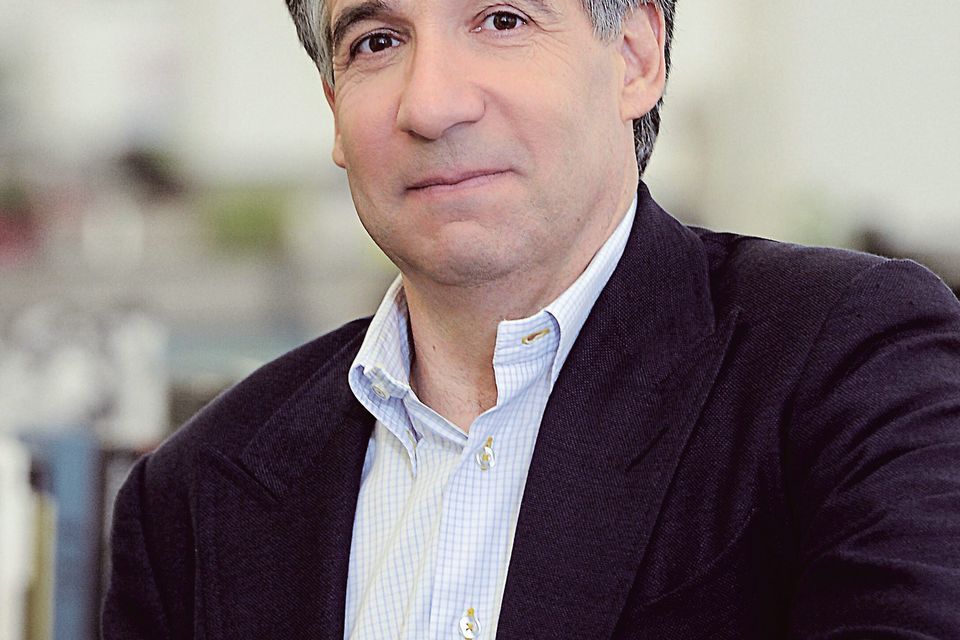Dear Google, stop copying and pasting our images
Jonathan Klein, co-founder and chief executive, Getty Images, says adopting technology is vital.
Many of us have had a photo we shot copied and posted, unattributed, by a stranger online. It can cause pique and mild indignation.
But what happens when you're the head of the world's biggest professional photo archive service? How do you maintain an online commerical photo business in a world of Instagrams, Twitters and Flickrs?
Such is the battle that Jonathan Klein, co-founder and chief executive of Getty Images, finds himself waging. Today's 'sharing economy' presents some steep hurdles.
But it is not Facebook, Instagram or Pinterest that is causing his company real grief: it's Google. Unlike Facebook and Pinterest, which are dominated by personal image use and licensed commercial models, search engines' stated mission of democratising the world's information are creating a piracy epidemic for professional photography, according to Klein.
"It's the search engines that are the existential threat here," he says. "It's because of their image search facilities. Whereas Google will direct queries about music or products to sites that let you listen legally or buy something, it doesn't do that for pictures. Instead, it lets you simply right-click on an image result, save it, and have that picture work on another website. That really isn't acceptable in our view."
Tens of thousands of photographers, who don't have concert tours or billboard product endorsements, might agree with Klein. To this end, Getty Images is currently mounting legal action against search engines in Europe and the US.
But isn't this just a consequence of the growth of a 'sharing economy'? In a world where 50 million photos are uploaded to Instagram (alone) every day, is it simply the way of things to come?
"No, the sharing economy has actually been okay for us," says Klein. "Pinterest, for example, pays us to share our images. So instead of low images with no metadata, we allow them to keep metadata and we supply them with information about what images are being shared, where they're shared and how often they're shared. They can then use that to build an ad stream."
Moving with technology is crucial to Getty Images' survival, says Klein.
"Disruption is our cornerstone," he says. "We were doing it before it was fashionable. When we started this business, the industry was run by people in love with photography. They couldn't imagine looking at pictures on a screen, which was sacrilege. It needed outsiders to come in and shake it up. So our very existence came about from disruption."
The internet, he says, was also embraced.
"When we figured out that we could get paid for pictures on the web, we did it instead of worrying about quality," he says. "When we've seen smaller companies that are disrupting us, we've taken them very seriously, sometimes acquiring them, It's arrogant companies who dismiss new ideas and new disruptive companies. We have to think like startups. Even if a business model seems cannibalistic and anathema to our own business model, we often recognise that that is where technology is going."
Getty Images' growth has been phenomenal. Fifteen years ago, it was selling fewer than 100,000 images per year. In the second quarter of this year, it sold 105 million.
"That kind of growth wouldn't have happened without websites or social media," says Klein. "We've made it easy to embed images in a legal, profitable way." And up next, he says, is a concerted effort to develop a consumer business. "We want to be integrated on more platforms," he says. "When you're in a world where pictures are the primary language of communications, you have to adapt your model to selling images at every price point to every user at all budgets."
Part of that involves developing new integration tools ('APIs') to make it easier for modern services to give access to Getty's library. But part of Klein's job is to fight freeloaders, too.
"We are very focused on defending photographers," he says. "We believe that if all content becomes free there won't be much new content."
To this end, the company is investing heavily in image recognition techniques that it hopes will help it tackle the copying and pasting of its photographers' work.
"It's a very big push for us to have the best visual recognition technology in the world," says Klein. "The opportunities are enormous, especially in areas such as monitoring the unauthorised use within search."
Klein himself admits to being an "improving" amateur photographer."Most of the photos I take are actually on the iPhone," he says. "But it's my life. And I'm getting better."
Jonathan Klein will be speaking at this year's Web Summit from November 4-6 at Dublin's RDS.
Join the Irish Independent WhatsApp channel
Stay up to date with all the latest news















